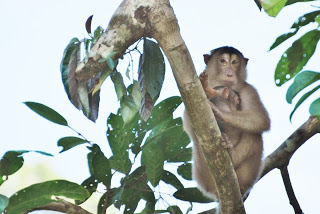
Kabir Bavikatte and Johanna von Braun (Natural Justice) participated in the African regional consultation and capacity building workshop on reducing emissions from deforestation and forest degradation in developing countries (REDD)-plus and biodiversity safeguards. The consultation/workshop was held in Cape Town from 20-23 September and is one of three regional workshops that the Convention on Biological Diversity (CBD) Secretariat was requested to implement by Decision X/33 at the latest CBD Conference of the Parties. Natural Justice also attended the Asia regional consultation held in Singapore in March 2011.
At the workshop, different African countries presented on the status of their World Bank-supported Forest Carbon Partnership Facility (FCP) REDD readiness preparation process. The participants were then divided into working groups that were required to provide recommendations on: a) developing advice on the application of relevant REDD-plus safeguards for biodiversity and Indigenous peoples and local communities; and b) identifying indicators to assess the contribution of REDD-plus to achieving the objectives of the CBD.
The participants also discussed the existing REDD-plus safeguards to see if they effectively addressed the concerns raised in the Global Expert Workshop on REDD-plus held in Nairobi from 20-23 September, 2010. These safeguards included the REDD-plus Social and Environmental Standards developed by the Climate, Community and Biodiversity Alliance; the draft UN-REDD Social and Environmental Principles and Criteria; the Cancun Safeguards; and the World Bank Safeguard Policies. The concerns included:
- The conversion of natural forests to plantations and other land uses of low biodiversity value and low resilience, and the introduction of growing of biofuel crops;
- Displacement of deforestation and forest degradation to areas of lower carbon value and high biodiversity value;
- Increased pressure on non-forest ecosystems with high biodiversity value;
- Afforestation in areas of high biodiversity value;
- The loss of traditional territories and restriction of land and natural resource rights of Indigenous peoples and local communities;
- Lack of tangible livelihood benefits to Indigenous peoples and local communities and lack of equitable benefit sharing;
- Exclusion from designing and implementation of policies and measures; and
- Loss of traditional ecological knowledge.
The workshop ended with participants recommending, among other things, that there must be greater harmonization between the development of REDD-plus safeguards and the guidelines and safeguards that have already been developed by the CBD, including the Akwe: Kon Guidelines. Furthermore, the REDD-plus safeguards should seriously consider best practice and innovative tools developed under the CBD process, including community protocols in the context of access and benefit sharing, experiences from community-based natural resource management, biotrade, and payment for ecosystem services.









